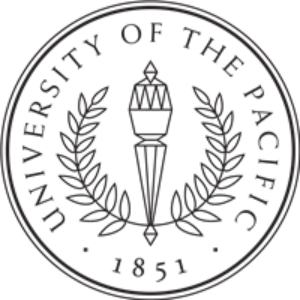

Course Title
PDSI 9939 – The Resilience Breakthrough
Earn from 1-2 graduate credits.
- 1 credit $150 per course, 2 credits with completion of Place Based Education Indepenedent Study Day, $275
- The course is offered “On Demand” for you to complete on your schedule
- For 34 years, we have been in the trenches with teachers. We care about you.
Course Information
Date: On-Demand Only
Location: Online
Instructor: Christian Moore & Bruce Bushnell
“The Resilience Breakthrough”
Christian Moore & Bruce Bushnell 
WhyTry
On-Demand Agenda
- Session I Keynote – “Resilience Can Be Taught – The Resilience Breakthrough” – Christian Moore
- Session II Keynote – “The Four Sources of Resilience” – Bruce Bushnell
- Session III Keynote – “Tools for Turning Adversity Into Action” – Bruce Bushnell
- Additional Content – Why Try’s Suicide Prevention Video
Additional Independent Study to complete 15 hours which = 1 graduate semester credit
2 credit option: Complete one credit requirements above and then complete a one day Place Based Education experiential learning experience. Journal your hours of PBE and wellness, plus answer 10 questions and/or complete your finished product story (15 hours). Submit into Canvas apartment.
Please Note: The presentations in this conference are taken from the 2020 National Virtual Conference. If you participated in that event, these sessions will be repetitive.
About WhyTry
 The WhyTry Program is based on the life experiences of our founder Christian Moore, and what he learned from his informal foster mother, Mrs. Patricia Jackson. Christian came from a very challenging home environment with parents that struggled with mental health issues. Christian was diagnosed at a young age with ADHD and conduct disorder. He struggled with severe learning disabilities in the areas of reading and math. School was very difficult for him. At a young age, Mrs. Jackson took Christian under his wing and taught him the social and emotional skills he needed to thrive. But he was still struggling academically. Christain was a special ed student. High school counselors advised him to pursue vocational skills because college was not going to be an option for a student like him. In spite of all of those challenges, Christian received a masters degree with about a 6th-grade math level and a 7th-grade reading and writing level.
The WhyTry Program is based on the life experiences of our founder Christian Moore, and what he learned from his informal foster mother, Mrs. Patricia Jackson. Christian came from a very challenging home environment with parents that struggled with mental health issues. Christian was diagnosed at a young age with ADHD and conduct disorder. He struggled with severe learning disabilities in the areas of reading and math. School was very difficult for him. At a young age, Mrs. Jackson took Christian under his wing and taught him the social and emotional skills he needed to thrive. But he was still struggling academically. Christain was a special ed student. High school counselors advised him to pursue vocational skills because college was not going to be an option for a student like him. In spite of all of those challenges, Christian received a masters degree with about a 6th-grade math level and a 7th-grade reading and writing level.
At one point, while he was working on his master’s degree, a professor was amazed at how far he made it through school with his learning disabilities. This professor told him: “Did you know that people with your severity of learning disabilities have only a 2% chance of getting a bachelor’s degree and less than 1% chance of getting a master’s degree?” Then he challenged Christian to write down what he had done to get this far. Christian recalled the lesson Mrs. Jackson and may other mentors taught him along the way. Those principles became the basis for the WhyTry Program.
But, when Christian was first trying to teach these principles to students and clients, he became frustrated. He realized that when he talked to them they didn’t listen! So, one day, he was venting his frustrations to a colleague, a school psychologist. She replied: “Christian, I know why you are struggling to teach principles to your students. You’re just talking to them. They’re not good auditory learners. They are more visual, or hands-on learners.” In response, Christian tried a different approach. He began to draw pictures while he was talking. The kids that wouldn’t listen before suddenly started to focus in on his drawing. He would ask them questions and they would give him responses. He would write those responses down around the picture.
After completing the picture, he would ask: “If somebody asked you what this picture is about what would you say?” The kids could explain it back in detail. They would remember it! Even a week later, when he would meet with them again, they would remember the details of the previous conversation! Christian put together a team that included an artist, a technology specialist, psychologists, counselors, therapists, teachers, and administrators. Together, they developed tools to teach kids these important life skills in an engaging way.
Today, we have a series of pictures that are used to teach important social and emotional principles and life skills to students through a visual metaphor. These are very powerful and allow students to process complex ideas in a way that they can understand and remember. Since those early days, our programs have evolved to include multiple methods of delivering a lesson. These methods include hands-on activities, funny and engaging video clips, music, journals, art activities, book lists with example stories, and more.
For more information, visit https://whytry.org
Earn Credit Hours through the University of the Pacific

Summer Institutes partners with the Center for Professional and Continuing Education (CPCE) at the University of the Pacific to offer professional development programming where students can earn graduate-level professional development units (PDUs) for successful completion of applicable coursework. Learn more





